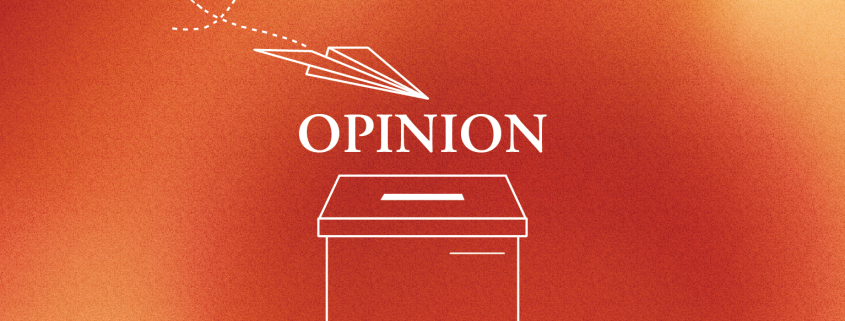Pan y Café: I don’t want to be resilient anymore
Growing up, my mom hated when I cried.
Hate is a strong word, but I don’t know what else to call it. If I cried because she yelled at me, she would yell at me even harder because I was crying. Her go-to saying was “You’re crying? I haven’t even given you a reason to cry.”
I could never hide it from her either. After all, my face would get so red and splotchy that I would splash cold water on it just, so she couldn’t tell that I had been crying. This never worked, though. She always caught on. My only saving grace came when I was old enough to wear makeup that could hide the redness.
I’ve spent years processing this, trying to figure out what in her psyche made her believe a young girl needed this type of parenting from her mother. I realize now that I don’t blame her nor do I resent her for it. She viewed this as her form of shaping me to have thick skin, to be as tough as her. To be resilient.
This stripping of fragility and softness is something that I’ve been praised for throughout my entire life. I’ve bristled whenever people have called me resilient, strong, tough, brave or courageous.
I want to tell them that this is what was expected of me. There’s never been one moment in my life where I was afforded the luxury, mercy or kindness of sadness. There was never time to ponder and sit through sorrow — that’s not allowed in my culture. And that’s definitely not allowed in immigrant families. Sadness is considered a selfish choice when there’s the family to worry about. And after all, isn’t hardship part of the American dream?
I wonder if my mom knew ahead of time that it was better to teach me how to shield myself against trauma rather than let it destroy me from within. Given that much of this lecturing occurred when my family was undocumented in the United States, perhaps this was her way of her saying, “Brace yourself. If you think you’re sad now, the worst is yet to come.”
In fifth grade, Immigration and Customs Enforcement detained my dad while he was on his way to work. This happened around 4 a.m. on a weekday, and the memory is permanently branded in my brain.
I woke up because of my grandma loudly pleading to God to save our family from this devastation, while my mom called every relative she knew and asked if they could give her a ride to the detention center in downtown Sacramento or if they knew an immigration lawyer. I never once saw my mom cry about any of this, at least not in front of me or my siblings.
Perhaps a family who wasn’t built so much on toughness would’ve let me stay home from school and find a way to process our worst nightmare unfold before us. Instead, I braided my hair into two strands because abuelita was too busy to do it for me, went off to school arriving sharply on time to eat breakfast in the cafeteria and blamed my tears on fake allergies when my classmates asked about my puffy tear-ridden eyes.
I’ve spent my entire life knowing how to take the worst the world has to throw at me. I’m numb to a lot of things now — so much so that I’ve exploited my own resiliency time and time again for personal gain. I wrote all about my trauma during college application season because I wanted whoever was on the opposite side to know I can overcome any challenges that come my way. “Look at me,” I wanted to say. “If I can handle all of this, I can handle your university. You need someone like me.”
I’m so tired of this, though. I am so, so, so, so, so tired. I never want to write about that again. I never want to rely on that again.
I no longer want to carry the burden of being resilient. Resilient is what we label people, especially women of color, who are expected to handle tough situations with gracefulness. No one looks toward dismantling the systems and people who hurt us. Instead, we are awarded pats on the back for surviving.
I long for a life where I’m allowed to feel sad without feeling guilty. I wish I wasn’t conditioned to think that whenever something bad happens to me that the first thing I say to myself is, “There’s someone out there who has it worse,” because I want to detract myself from my pain.
I yearn to be able to fall apart. I crave a world where I don’t have to race to heal myself as quickly as possible.
I’m not sure if that will ever exist, but at least I hold on to the hope that one day it will. And maybe I’ll finally feel comfortable crying without feeling like I’m letting myself down — red, splotchy face and all.
Angie Orellana Hernandez is a senior writing about contemporary Latinx experiences in conjunction with higher education. Her column, “Pan y Café,” runs every other Friday. She is also the Development and Recruitment Director at the Daily Trojan.

